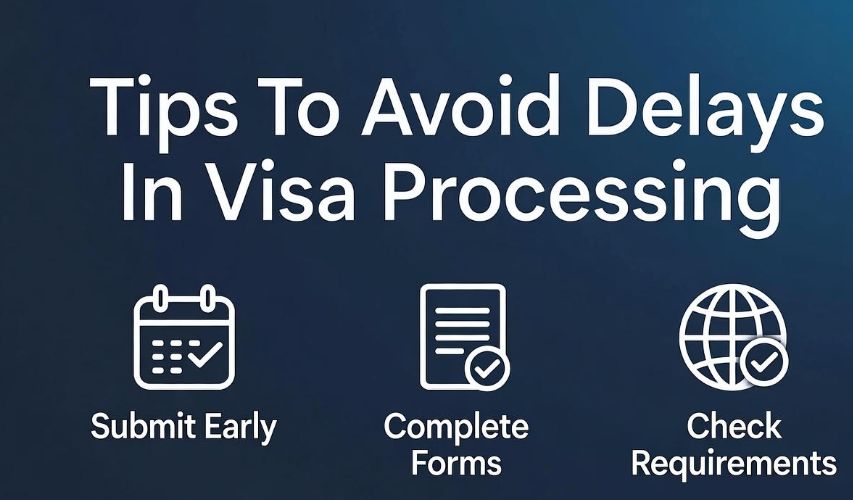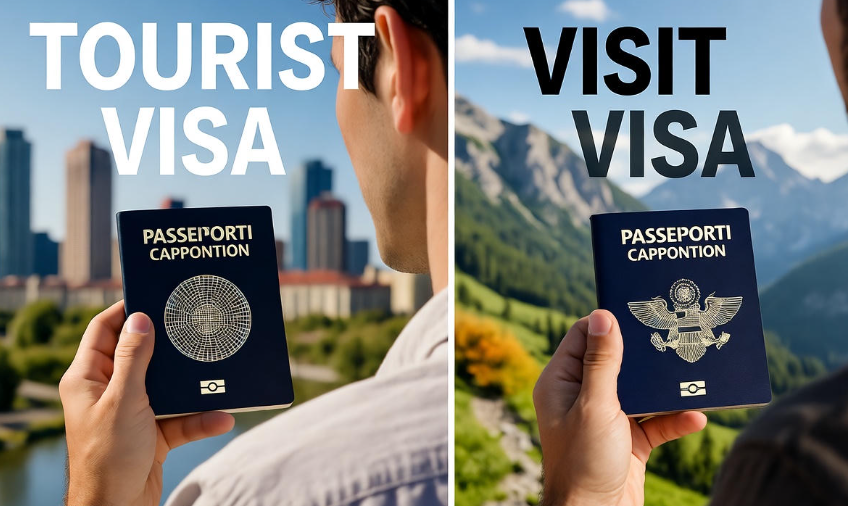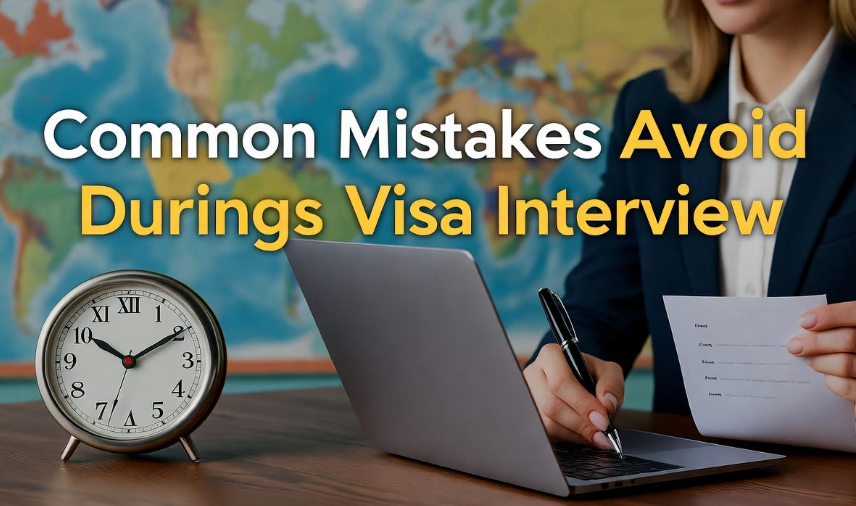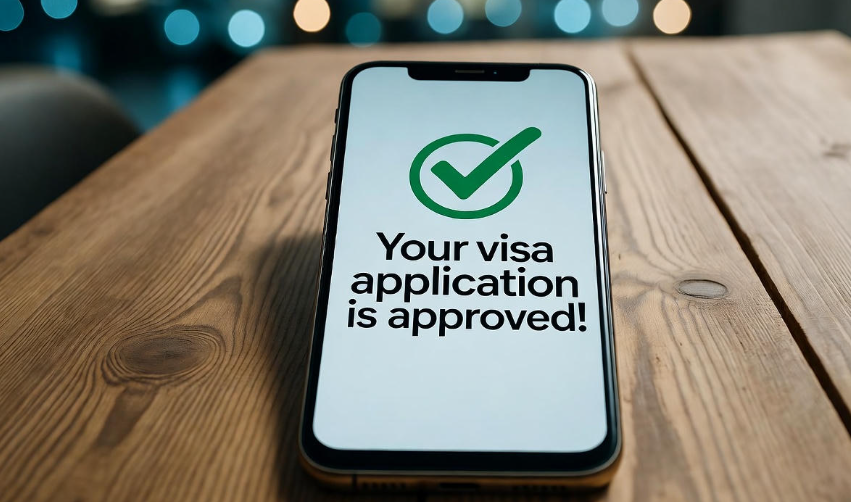Getting a visa approved quickly is one of the biggest concerns for anyone planning to travel, study, or work abroad. Yet, many applicants end up waiting longer than expected — sometimes even missing deadlines or flight dates — just because of small mistakes or incomplete steps. The good news? You can avoid all that stress with the right approach. This guide will walk you through simple, practical, and human-tested tips to help you speed up your visa processing and reduce unnecessary delays.
Understanding Why Visa Delays Happen
Before jumping into the tips, it’s important to know why visa delays occur in the first place. Sometimes, it’s not your fault — it could be due to embassy workload, background checks, or global travel demand. But most of the time, delays happen because of avoidable mistakes: missing documents, wrong details, unclear travel plans, or late submissions.
When you understand the root causes, you can easily prevent them. Let’s look at how to stay ahead of the problem.
Start Early — Don’t Wait Till the Last Minute ⏰
This is the simplest yet most powerful advice. Starting your visa process early gives you time to collect all documents, fix any errors, and respond to embassy requests if needed.
Most embassies recommend applying at least 3 months before your intended travel date. For student or work visas, even earlier — about 4–6 months ahead — is better.
If you wait till the last minute, even a small issue (like a missing signature or wrong form) could delay your trip.
| Type of Visa | Ideal Time to Apply Before Travel |
|---|---|
| Tourist Visa | 2–3 months |
| Student Visa | 4–6 months |
| Work Visa | 3–6 months |
| Family/Dependent Visa | 3–5 months |
So, the earlier you apply, the less stress and uncertainty you’ll face.
Check the Embassy Requirements Carefully
Every country has its own visa rules, and sometimes even different embassies of the same country can have slightly different requirements.
Before you apply, go to the official embassy website and read the checklist carefully. Don’t rely on blogs or agents alone — embassy guidelines change from time to time.
Check:
-
What documents are required (originals, photocopies, translations)
-
The format of financial proof (bank statement, salary slip, etc.)
-
The correct photo size and background color
-
The official application form version
A single missing or outdated document can push your application to the “pending” pile.
Fill Your Application Form Correctly ️
Many delays happen simply because the form is filled incorrectly. The visa officer needs clear, matching information in every section.
Be careful about:
-
Matching your name exactly as it appears on your passport
-
Entering correct travel dates
-
Using the same address across all documents
-
Avoiding spelling or date errors
If you’re unsure about something, leave it blank until you confirm. Never guess — embassies cross-check details with your passport, bank, and employer.
Provide Clear Supporting Documents
The more clear and organized your documents, the easier it is for officers to process your file. Messy paperwork slows down verification.
Here’s how to keep it neat:
✅ Arrange papers in the same order as the checklist
✅ Use paper clips or transparent folders instead of stapling everything together
✅ Label each section (like “Financial Proof” or “Travel History”)
✅ Make sure all photocopies are readable and signed where necessary
Embassies appreciate clean, professional-looking applications — it saves their time and yours.
Pay Attention to Passport Validity
A surprisingly common reason for visa delay is an almost-expired passport. Most countries require your passport to be valid for at least 6 months beyond your travel date.
So, if your passport is near expiry, renew it before applying. Also check that it has enough blank pages for visa stamps.
Double-Check Your Financial Documents
Visa officers often verify your financial stability. If your documents look unclear, they may request extra proof — which delays everything.
Here’s what you can do:
-
Submit bank statements of the last 3–6 months
-
Avoid sudden large deposits right before applying (it looks suspicious)
-
Make sure your name and account number are clearly visible
-
Get salary slips or tax returns if required
It’s always better to show consistent financial activity rather than a sudden balance jump.
Schedule Your Appointment Early ️
For most visa types, you need to book a biometric or interview appointment. During peak travel seasons (like summer or holidays), appointment slots fill up quickly.
Try to schedule your slot as soon as the system allows. If you can’t find one, check the portal daily — sometimes cancellations open up new spots.
Also, don’t skip your appointment or arrive late — rescheduling can take weeks.
Be Honest During the Interview
If your visa process includes an interview, honesty is your best policy. Visa officers are trained to spot inconsistencies.
If they sense confusion or dishonesty, they may put your case under “administrative review,” which can delay approval for months.
Tips for the interview:
-
Stay calm and confident
-
Answer questions clearly — don’t give extra or unrelated details
-
Keep your documents organized in case the officer asks for them
-
Smile politely — a positive attitude leaves a good impression
Avoid Using Fake or Edited Documents
This is critical. Never use fake invitation letters, employment letters, or bank statements. Even if someone “guarantees” they can get your visa faster, fake documents can cause permanent bans or rejections.
Embassies verify all documents carefully. It’s better to apply honestly and wait a few extra days than risk a ban that could stop you from traveling forever.
Track Your Application Online
Once you’ve submitted your application, don’t just sit and wait. Most embassies allow you to track the progress online using your reference number.
Regularly check your email and the embassy portal for updates. Sometimes, they request an extra document or clarification — replying quickly prevents unnecessary delays.
-
Planning to stay longer abroad? Learn more: How to Extend Your Work Visa Legally
Stay Available for Communication
If the embassy or visa center contacts you, respond promptly. Delays often happen because applicants don’t check their emails or miss calls.
Use an email you check daily and keep your phone reachable during business hours. If you change your contact info, update it with the visa center immediately.
Avoid Peak Seasons (If Possible)
Visa offices receive the highest number of applications during holidays, summer vacations, and before academic intakes (August–September).
If your travel dates are flexible, apply during less busy months. You’ll face shorter processing times and easier appointment scheduling.
Use Professional Visa Assistance (If Needed)
If your case is complicated — such as family sponsorship, dependent visas, or long-term study — it might help to get assistance from a licensed visa consultant.
Just make sure they are registered and authorized, not random agents. Good consultants can help you prepare your documents properly and avoid common mistakes.
Keep Copies of Everything
Always keep digital and printed copies of your submitted documents and payment receipts. If something gets misplaced or requested again, you can provide it immediately.
| Document Type | Why Keep a Copy |
|---|---|
| Application Form | For future reference |
| Payment Receipt | Proof of submission |
| Passport Copy | Backup for ID verification |
| Supporting Documents | Easier re-submission if needed |
It’s a small habit that saves big time later.
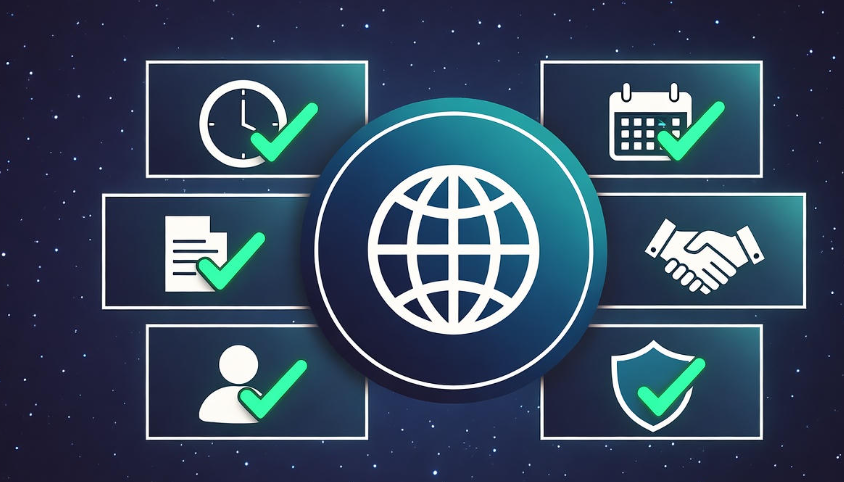
Double-Check Travel Insurance and Medical Certificates
Some visa types require travel or health insurance. If you submit an invalid or expired policy, your application may be delayed.
Always buy valid insurance that covers the required duration and region. The same goes for medical test certificates — submit updated ones only.
Follow Up Politely — Don’t Rush Embassy Staff
If your visa takes longer than expected, you can follow up politely by email or call. But don’t flood them with daily messages.
Embassy staff handle thousands of files. A respectful reminder every 10–15 days is enough. Being polite often gets a better response than being pushy.
Double-Check Travel Details After Visa Issuance
Even after your visa is approved, verify that your name, passport number, and validity dates are correct. If there’s a typo, inform the embassy immediately.
It’s rare, but mistakes happen — and catching them early avoids problems at the airport.
Quick Summary Table — Do’s & Don’ts To Avoid Visa Delays
| ✅ Do’s | ❌ Don’ts |
|---|---|
| Apply early | Wait until last minute |
| Read embassy checklist | Trust only unofficial sources |
| Provide clear documents | Submit unclear or incomplete papers |
| Stay honest and calm | Give false or confusing information |
| Track your application | Ignore embassy emails |
| Renew old passport | Apply with expired passport |
| Check financial proofs | Submit suspicious transactions |
Final Thoughts
Visa processing doesn’t have to be a stressful, drawn-out experience. Most delays happen because of small, fixable errors. When you stay organized, start early, and follow the rules carefully, your application moves much faster.
Remember, the visa officer wants to approve genuine travelers — they just need clear, accurate information. If your file is complete and honest, there’s no reason for long delays.
So, take a deep breath, follow these steps, and soon you’ll be ready to pack your bags confidently — with your visa stamped and ready to go. ✨
Frequently Asked Questions (FAQs)
Q1. What is the best time to apply for a visa?
Ideally, apply at least 3 months before your travel date. For student or work visas, start even earlier — around 4–6 months in advance.
Q2. Can missing one document cause a delay?
Yes. Even one missing or incorrect document can pause your application until you provide it. Always use the embassy’s official checklist.
Q3. Why do background checks take so long?
Security and background checks depend on your nationality, travel history, and purpose of visit. They take extra time if authorities need to verify details.
Q4. Should I use a visa consultant?
If your case is complex or you’re unsure about paperwork, a registered visa consultant can help — but always verify their credentials.
Q5. Can I travel while my visa is still processing?
No. You must wait until you receive an approved visa. Traveling before that may cause issues at immigration.
Q6. What should I do if my visa is delayed?
Stay patient and check the official status regularly. You can send a polite inquiry email to the embassy or visa center after the normal processing period passes.

